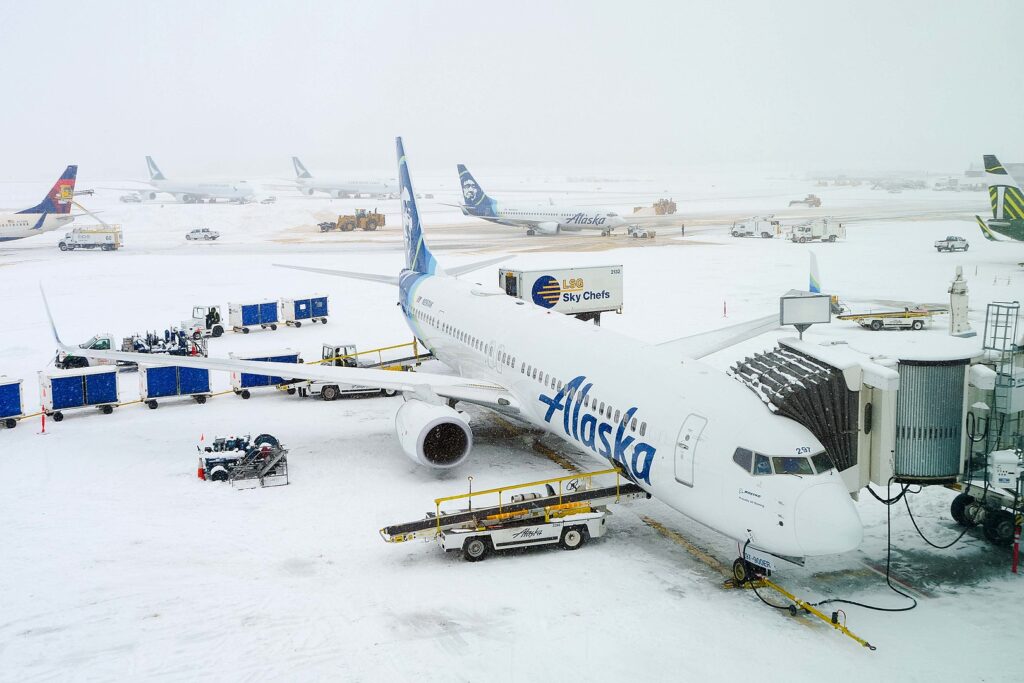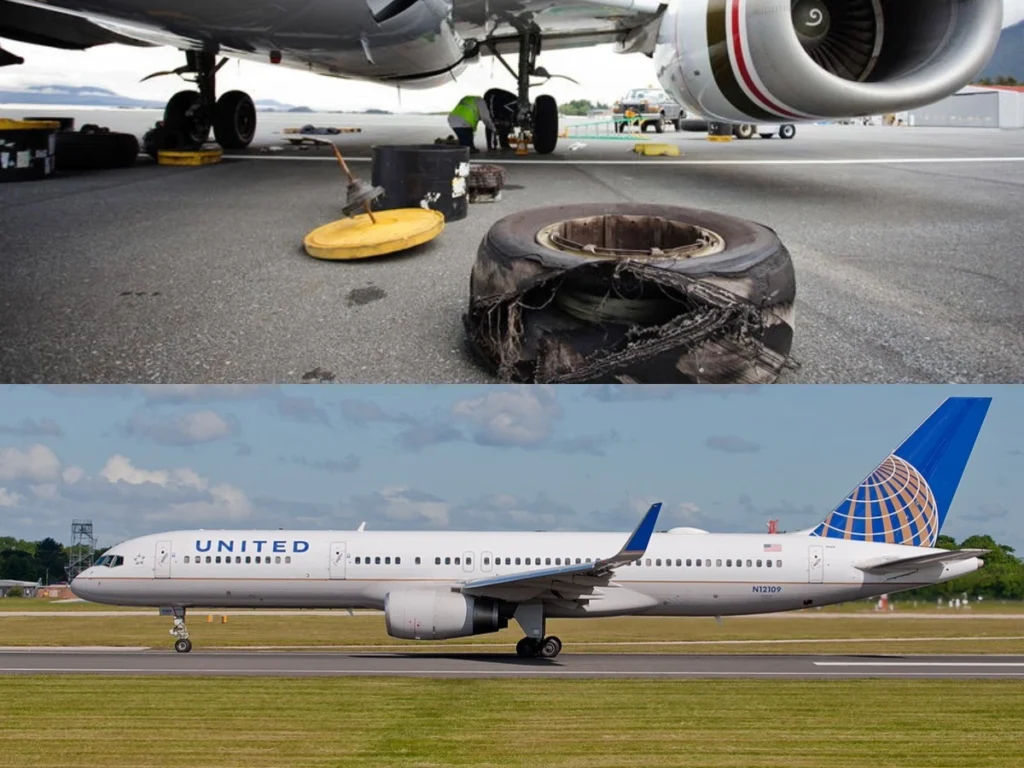
Атланта- Авиакомпания Alaska Airlines (AS) Boeing 737 MAX 9 вылетела из международного аэропорта Хартсфилд-Джексон Атланта (ATL) и получила неисправность шин при вылете. Полет продолжился и завершился в Сан-Диего, несмотря на проблемы с шинами.
Полет AS474 Вылетел около 17:30 по местному времени в четверг, 3 апреля 2025 года. Инцидент закончился без травм среди 171 человека на борту.
 Фото: Стив Найт | Flickr
Фото: Стив Найт | FlickrAlaska Airlines 737 MAX 9 9
По данным Федерального управления гражданской авиации (FAA), рейс AS474 взлетел Взлетно-посадочная полоса 26L В международном аэропорту Хартсфилд-Джексон Атланта (ATL) взорвалась правая шина левого основного шасси.
Обломки от взорванной шины были позже обнаружены к востоку от Таксивей Д. Оценив ситуацию, летный экипаж определил, что безопасно продолжать путешествие в Сан-Диего.
Примерно через 4,5 часа после вылета самолет благополучно приземлился в международном аэропорту Сан-Диего (SAN) в 19:19 по местному времени. В качестве меры предосторожности пилоты объявлено чрезвычайное положение Посадка для обеспечения дополнительной поддержки будет доступна.
Представитель авиакомпании Alaska Airlines заявил, что, хотя такие инциденты редки, пилоты проходят обширную подготовку для безопасного реагирования на различные чрезвычайные ситуации.
 Фото: Alaska Airlines
Фото: Alaska AirlinesОб этом сообщает FAA повреждение левого двигателя, который располагался рядом с взорванной шиной. Вся сумма ущерба остается под следствием. После инцидента авиакомпания Alaska Airlines (AS) заземлила самолет для технического обслуживания.
Boeing 737-9 MAX зарегистрирован как N967AKОн остался на земле в Сан-Диего (SAN) по состоянию на пятницу днем, а его следующий запланированный рейс в Сиэтл (SEA) отменен.
Пострадавшее воздушное судно находится в эксплуатации около двух лет, будучи доставлено авиакомпании Alaska Airlines (AS) в мае 2023 года. Он имеет 16 мест первого класса и 162 места в главной каюте, в том числе 24 места премиум-класса.
 Фото: Квинтин Соловьев - Собственная работа, CC BY-SA 4.0, https://commons.wikimedia.org/w/index.php?curid=110510516
Фото: Квинтин Соловьев - Собственная работа, CC BY-SA 4.0, https://commons.wikimedia.org/w/index.php?curid=110510516Аналогичные недавние инциденты
Это событие следует за несколькими аналогичными событиями в прошлом году.
В ноябре другой Boeing 737-900 авиакомпании Alaska Airlines (AS) испытал отказ шин во время взлета из международного аэропорта Вашингтона Даллес (IAD), но благополучно завершил свой рейс в Лос-Анджелес (LAX).
Boeing 757-200 авиакомпании United Airlines (UA) потерял основное зубчатое колесо после взлета из Лос-Анджелеса (LAX), при этом колесо приземлилось на стоянке для сотрудников.
SkyWest (OO) CRJ-900 Delta Connection (DL) благополучно приземлилась в Миннеаполисе (MSP) после того, как шина взорвалась во время взлета в Гранд-Рапидс (GRR). Кроме того, рейс American Airlines (AA) испытал выдувание шин во время подготовки к взлету, вызывая дым и искры на взлетно-посадочной полосе, прежде чем шины загорелись, когда самолет остановился.
 Фото: Wikimedia Commons; составлено Aviation A2Z
Фото: Wikimedia Commons; составлено Aviation A2ZНижняя линия
Неисправности шин, такие как взрывы или взрывы, иногда происходят, несмотря на передовые инженерные и строгие протоколы обслуживания. Эти инциденты создают существенные проблемы, компрометирующие управление самолетом, вызывающие дополнительные механические проблемы; и Иногда это приводит к крупным авариям.
Такие события создают серьезные трудности для пилотов и наземного персонала, накладывая значительные финансовые последствия на авиакомпании.
Пилоты проходят специализированную подготовку по управлению такими случаями отказов шин самолета, поддерживая безопасность пассажиров с помощью отработанных протоколов.
Безопасность во время этих событий основана на комплексном подходе, который включает в себя хорошо спроектированную конструкцию шин, тщательное техническое обслуживание и квалифицированные пилотные аварийные процедуры, которые вместе минимизируют потенциальные опасности при сбоях шин.
Оставайтесь с нами. Следуйте за нами в социальных сетях для последних обновлений.
Присоединяйтесь к нам в Telegram Group для последних обновлений авиации. Следуйте за нами в Google News
Boeing 737 авиакомпании Alaska Airlines поврежден при налогообложении
Авиакомпания Alaska Airlines 737 MAX 9 Tire Burst в аэропорту Атланты впервые появился на Aviation A2Z.















